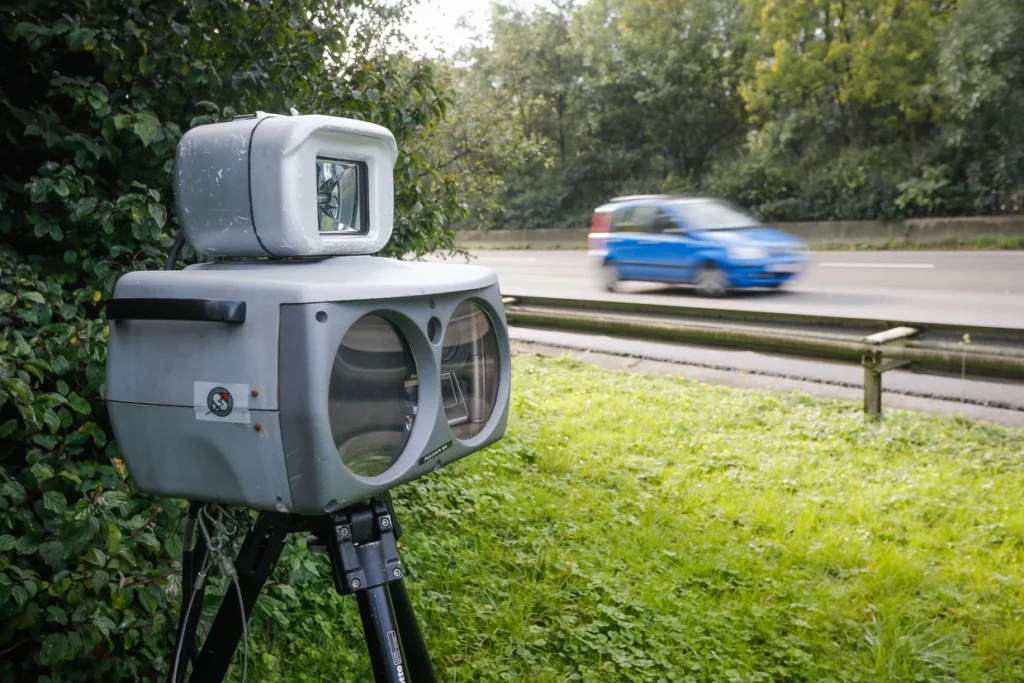Police will carry out extra speed checks on Belgian roads for 24 hours, starting from Tuesday at 06:00. Road Safety Institute Vias stressed that the positive impact of speed checks cannot be underestimated.
Along with drink-driving and the use of mobile phones behind the wheel, excessive speed is one of the main causes of road accidents in Belgium: one in three fatal accidents is due to inappropriate or excessive speed, and the higher the speed, the more serious the consequences of a road accident.
"If all drivers everywhere respected speed limits, there would be 140 fewer deaths and 550 fewer serious injuries on our roads every year," Vias' spokesperson Stef Willems noted.
The police are increasingly targetting their actions against such behaviour, including with their 24-hour "speed check marathon". From Tuesday morning at 06:00, the police will hold the 19th such "speed camera marathon" until the same time on Wednesday morning. Extra speed checks will be carried out on roads across Belgium.
Tweet translation: "Attention: speed camera marathon! On Tuesday, 21 November from 06:00 onwards, the police will hold a 24-hour speed camera marathon across our country. Excessive speed is a leading cause of road accidents, yet many drivers continue to underestimate the risks."
With this announced control action, the police primarily want to encourage drivers to stick to the permitted speed limit at all times and everywhere, as drivers in the country have a cultural problem with speeding. "Many drivers still minimise the dangers posed by excessive speed," a statement by the Federal Police read. The aim is actually to fine as few people as possible.
During the last marathon speed check at the end of April this year, 4.56% of drivers checked (26,382 in total) were speeding in the 635 places that were checked at that time, while Vias found that the average speed decreased by 3-7% during one of the previous editions.
Undeniable impact
On the occasion of the 19th "speed check marathon", Vias looked at the number of injury accidents at places where speed checks have been installed over longer stretches of the road in recent years, and the effect they have had on road safety.
"The major advantage of this system is that it leads to a much more even speed profile over a longer distance. Drivers also change lanes less at section controls, which also reduces the risk of an accident," Willems said. "Compared to a 'normal' speed camera, there is less the effect of braking just before the speed camera and accelerating again just after it."
One example is the section control over a 7-kilometre distance between Sterrebeek and Bertem in Flemish Brabant on the E40, where the number of injury accidents has fallen by 55% since it was commissioned at the end of September 2018. The annual average of injury accidents dropped from 32 accidents on average in the four years before it was commissioned to 15.
Meanwhile, in March 2021, a double section control on the E42 was put into operation between Fleurus and the Spy motorway car park and between Spy and the Hulplanche motorway car park, in total monitoring drivers' speed over a distance of 26 kilometres. The installation of this dual-route control has reduced the number of accidents by 60%
Related News
- Faster fining and compulsory helmets: Vias urgently calls for improved road safety
- Rise in 'soft' mobility comes with clear rise in related accidents
In Mechelen, section controls were activated on 12 traffic axes during 2017. On those axes, 32 injury accidents were recorded last year compared to 64 in 2016 (and 76 on average in the previous five years), amounting to a 50% drop.
"Besides the 'accidents' aspect, better compliance with speed in built-up areas also improves liveability. Noise pollution is lower and vulnerable road users can travel more safely when more motorists respect speed limits," Willems noted.

